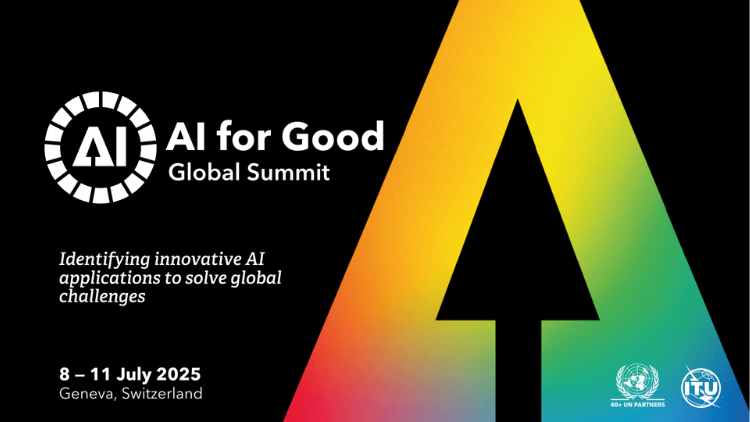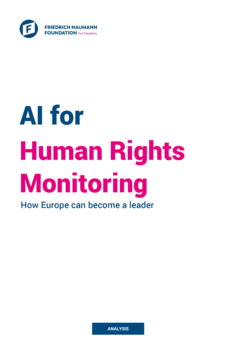Event
AI for human rights: Smarter, faster, fairer monitoring

As artificial intelligence (AI) technologies become increasingly embedded in our societies, their potential to solve global challenges is both exciting and complex. AI tools can support faster data analysis, help uncover patterns in large datasets, and expand the reach of human rights work. At the same time, their application in sensitive contexts raises important questions about ethics, accountability, and the balance between automation and human judgment.
This workshop offers a dynamic space to explore how AI can be leveraged to make human rights monitoring smarter, faster, and fairer, while ensuring that such use is grounded in human rights values and guided by critical reflection. Participants will engage with both the opportunities and the boundaries of AI, emphasizing the importance of human-AI collaboration, transparency, and inclusive design.
Organized by the Geneva Human Rights Platform (GHRP) of the Geneva Academy of International Humanitarian Law and Human Rights, and supported by the Friedrich Naumann Foundation Human Rights Hub in Geneva, this workshop forms part of a broader initiative on Digital Human Rights Tracking Tools and Databases (DHRTTDs), which supports ethical innovation and interoperability in human rights and SDG monitoring.
Learn more: https://www.geneva-academy.ch/geneva-humanrights-platform/tracking-tools
Gathering thought leaders from law, AI ethics, international policy, human rights monitoring, and data science, the workshop will combine a high-level panel with interactive group exercises, both human-to-human and human-to-AI. It aims to foster dialogue between human rights professionals and AI experts, spark creative problem-solving, and co-develop ideas for DHRTTDs that are both innovative and responsible.
Objectives
- Explore the real-world applications and limitations of AI in human rights and progress tracking for global goals, and when human expertise remains essential.
- Facilitate meaningful exchanges between human rights stakeholders and AI experts to build shared language, trust, and use cases.
- Identify opportunities for AI to support monitoring efforts, while addressing concerns related to ethics, inclusivity, and practical implementation.
- Co-develop solutions that integrate the strengths of both human insight and AI capacity, with a focus on supporting DHRTTDs.
- Promote understanding of the need for standardization, interoperability, and rights-based design principles in the development of AI for human rights
Agenda
Segment 1: High-Level panel on AI for human rights (14:00–14:40)
A moderated panel featuring leaders from the UN, civil society, and tech sector discussing the promises of AI for human rights and SDG monitoring, the ethical risks it poses, and what responsible, human rights-based AI integration could look like. This segment will set the stage for the workshop by grounding the conversation in real-world experience and strategic vision.
Segment 2: Interactive human-to-human exchange (14:40–15:00)
Participants will break into ten roundtables composed of human rights and development professionals, AI experts, and developers of DHRTTDs. Each group will explore a practical challenge in human rights and SDG monitoring, such as data availability, collection, information exchange, or institutional uptake. Human rights practitioners will share current practices and challenges in applying AI, and AI experts will respond with potential solutions drawing on techniques like natural language processing (NLP) and predictive analytics. Structured live polling through Slido will guide the discussion and surface key trends, which will be shared in a brief plenary wrap-up.
Segment 3: Hands-on simulation: using AI in human rights follow-up and reporting (15:00–15:30)
This interactive session led by the Treaty Body Capacity Building Programme team of the UN Human Rights Office will introduce participants to the AI features of OHCHR’s National Recommendations Tracking Database (NRTD) through a step-by-step demonstration. Using a sample recommendation from a UN human rights mechanism, the simulation will illustrate how AI can support the planning of follow-up actions, the tracking of implementation, and the reporting of progress. Participants will then break into groups to simulate follow-up using AI summary functions and assess their quality. The segment highlights the benefits of integrating AI into DHRTTDs, while underscoring the ongoing importance of human input and contextual understanding.
Segment 4: Building smart tools: human-AI collaboration for human rights monitoring (15:30–15:40)
In this live, on-screen demonstration, led by Dr. Łukasz Szoszkiewicz (Adam Mickiewicz University, Poznań), participants will witness how generative AI can rapidly prototype digital solutions using real-world human rights data. Through live prompting of a generative AI assistant, this segment will demonstrate how AI can generate and execute code to build tailored and functional monitoring tools — such as simple web interfaces and thematically tagged datasets — in a matter of minutes. Designed to inspire experimentation, the session will highlight the practical potential of human-AI collaboration for human rights monitoring – drawing on research findings from other disciplines – while underscoring the importance of human-in-the-loop design for transparency and accountability.
Segment 5: Structured Q&A and reflection (15:40–16:00)
The final segment brings the workshop full circle with a structured discussion that ties together key takeaways from the panel and group exercises. Moderators will invite reflections on both institutional and individual uses of AI in human rights monitoring, focusing on how to design and apply AI tools in a tailored and responsible way. Feedback from roundtables, along with technical insights from AI experts, will help identify enabling conditions for ethical and effective human-AI collaboration in digital human rights and SDGs monitoring.
Policy Brief
-

Artificial Intelligence (AI) is transforming how we gather and analyze information, offering powerful new tools to monitor human rights around the world. From scanning satellite images for evidence of atrocities to analyzing thousands of reports for emerging patterns, AI can help human rights defenders work more efficiently and effectively. Yet without proper safeguards, these same technologies pose risks that could undermine human rights protection efforts, particularly in monitoring contexts, through issues such as bias and discrimination, erosion of privacy, and lack of transparency.
At this critical juncture, the European Union (EU) has a strategic opportunity to lead global efforts in harnessing AI for good. The EU’s strong human rights tradition, robust regulatory frameworks (such as the General Data Protection Regulation (GDPR) and the AI Act), and institutional strengths position it to set standards that ensure AI advances justice and human rights values.
This policy brief outlines how AI can enhance human rights monitoring, the persisting challenges in applying AI in human rights monitoring and Europe’s opportunity to lead in AI for human rights monitoring. It concludes with actionable priorities for politicians and stakeholders to help secure a future where AI facilitates and strengthens, rather than threatens, the protection of human rights, with Europe at the forefront.